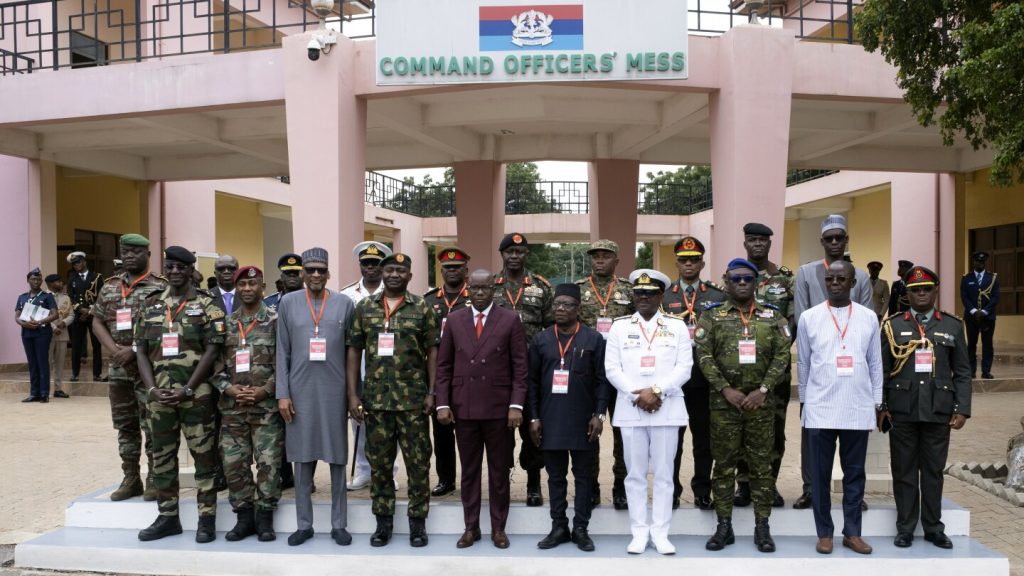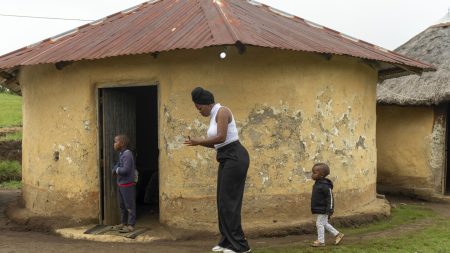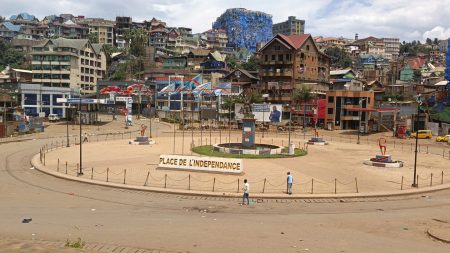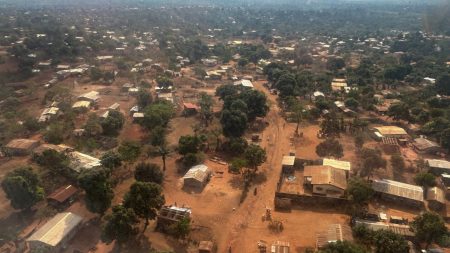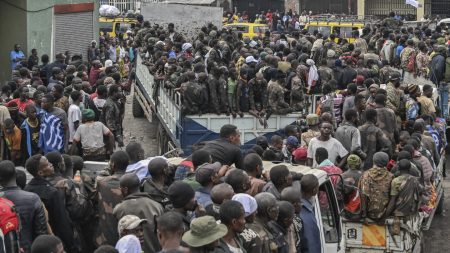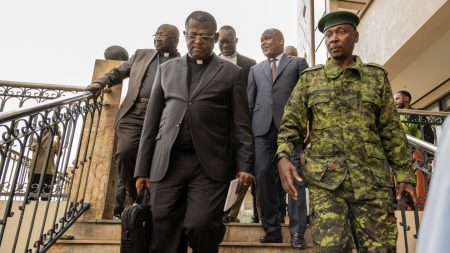A New Era of Regional Realignment: The Withdrawal of Mali, Niger, and Burkina Faso from ECOWAS
The Rise and Fall: Understanding ECOWAS and Its Challenges
The Economic Community of West African States (ECOWAS) has long been a cornerstone of regional cooperation in West Africa. Established in 1975, the bloc was designed to promote economic integration and address shared challenges across its 15 member states. With a combined market of over $700 billion and a population of nearly 400 million people, ECOWAS has played a pivotal role in fostering economic growth, ensuring visa-free travel, and addressing security threats in the region. However, recent events have shaken the foundation of this once-stable alliance. The withdrawal of Mali, Niger, and Burkina Faso from ECOWAS in January 2024 has marked a turning point in the bloc’s history, leaving it with only 12 member countries and raising questions about its future viability. This exodus, the first of its kind in ECOWAS’ 50-year history, has undermined the bloc’s political authority and weakened its ability to address the region’s growing challenges.
Analysts warn that a diminished ECOWAS could have far-reaching consequences for West Africa, a region already grappling with political instability, economic disparities, and security threats. The bloc’s legitimacy has been further eroded by perceptions that it prioritizes the interests of regional leaders over those of ordinary citizens. As the Sahel region faces escalating violence and instability, the weakening of ECOWAS could leave a power vacuum that external actors, such as Russia, may exploit. The withdrawal of Mali, Niger, and Burkina Faso is not merely a symbolic gesture; it represents a significant shift in the regional power dynamics and raises concerns about the long-term stability of West Africa.
The Junta-Led Nations: Why They Left ECOWAS
The decision by Mali, Niger, and Burkina Faso to leave ECOWAS was the culmination of a yearlong period of strained relations. Tensions began to rise after ECOWAS imposed harsh economic sanctions on Niger following a military coup in the country. These sanctions, which included border closures, the suspension of financial transactions, and the freezing of Niger’s assets, were the most severe measures the bloc had ever taken. While ECOWAS has long used sanctions as a tool to reverse coups, the severity of the measures imposed on Niger sparked outrage among the three junta-led nations.
In response, Mali, Niger, and Burkina Faso accused ECOWAS of straying from its founding principles of pan-Africanism and solidarity. They labeled the sanctions “inhumane” and argued that the bloc had become disconnected from the needs and aspirations of its citizens. The three nations contended that ECOWAS had lost sight of its original mission to foster regional unity and instead prioritized the interests of external powers. This perceived betrayal served as the catalyst for their decision to leave the bloc and forge a new alliance.
A New Alliance is Born: The Formation of the Alliance of Sahel States
In the wake of their withdrawal from ECOWAS, Mali, Niger, and Burkina Faso established a new regional grouping known as the Alliance of Sahel States (AES), named after the vast Sahel region that spans the southern edge of the Sahara Desert. The AES has sought to redefine regional cooperation, with a focus on addressing the unique challenges faced by Sahel nations, including poverty, insecurity, and climate change.
The formation of the AES has also been accompanied by a shift in the foreign policy orientations of its member states. The three nations have severed military ties with long-standing Western partners, such as the United States and France, and have instead turned to Russia for military support. This realignment reflects a broader trend of African nations seeking to diversify their international partnerships and reduce their dependence on traditional Western allies.
The Aftermath: Repercussions of the Withdrawal
The withdrawal of Mali, Niger, and Burkina Faso has left ECOWAS in a weakened state, both politically and economically. The bloc has attempted to mitigate the damage by reversing the sanctions it had imposed on Niger and extending an olive branch to the AES. However, these efforts have been rebuffed, with the AES rejecting ECOWAS’ overtures and asserting its independence.
Despite the split, ECOWAS has emphasized that trade and economic cooperation with the three nations will continue uninterrupted. Mali, Niger, and Burkina Faso remain members of the West African Economic and Monetary Union (WAEMU), which also includes countries like Senegal, Ivory Coast, and Togo. This ensures that the free movement of goods and people within the monetary union will not be disrupted. However, the symbolic and political significance of the withdrawal cannot be overstated. The departure of three key members has dealt a blow to ECOWAS’ credibility and raised questions about its ability to address the region’s pressing challenges.
The Road Ahead: Implications for Regional Stability and Cooperation
As the dust settles on this regional realignment, the focus turns to the future of ECOWAS and the potential consequences of its weakened position. The bloc faces an uphill battle in addressing the growing security crises in the Sahel region, which have already begun to spill over into coastal West African nations. ECOWAS’ ability to mediate conflicts and reverse military takeovers in Mali, Niger, and Burkina Faso is now in doubt, leaving a power vacuum that could be exploited by extremist groups and external actors.
Economically, the withdrawal of the three nations is likely to have far-reaching consequences. As some of the region’s poorest countries, Mali, Niger, and Burkina Faso may struggle to attract investments and develop their economies without the support of ECOWAS. Analysts warn that the loss of these nations could further exacerbate inequality and instability in the region.
Despite these challenges, ECOWAS has left the door open for the three nations to rejoin the bloc. However, with tensions running high and the AES asserting its independence, the likelihood of a reconciliation in the near future appears slim. As the region navigates this uncertain landscape, one thing is clear: the withdrawal of Mali, Niger, and Burkina Faso from ECOWAS marks the beginning of a new era in West African politics, one that will require innovative solutions and renewed commitments to regional cooperation.
Conclusion: The Future of Regional Integration in West Africa
The withdrawal of Mali, Niger, and Burkina Faso from ECOWAS has sent shockwaves through the region, raising questions about the future of regional integration in West Africa. While the formation of the AES offers a glimmer of hope for alternative forms of cooperation, the challenges ahead are significant. ECOWAS must now confront its own limitations and work to regain the trust of its citizens and member states.
At the same time, the AES faces its own set of challenges, from addressing the pressing security needs of its members to establishing a viable economic framework. The success of this new alliance will depend on its ability to deliver tangible benefits to its citizens and restore faith in the ideals of pan-Africanism.
As West Africa stands at this crossroads, the path forward will require dialogue, compromise, and a renewed commitment to the principles of regional solidarity. The decisions made in the coming months and years will shape the course of history for millions of people across the continent.





